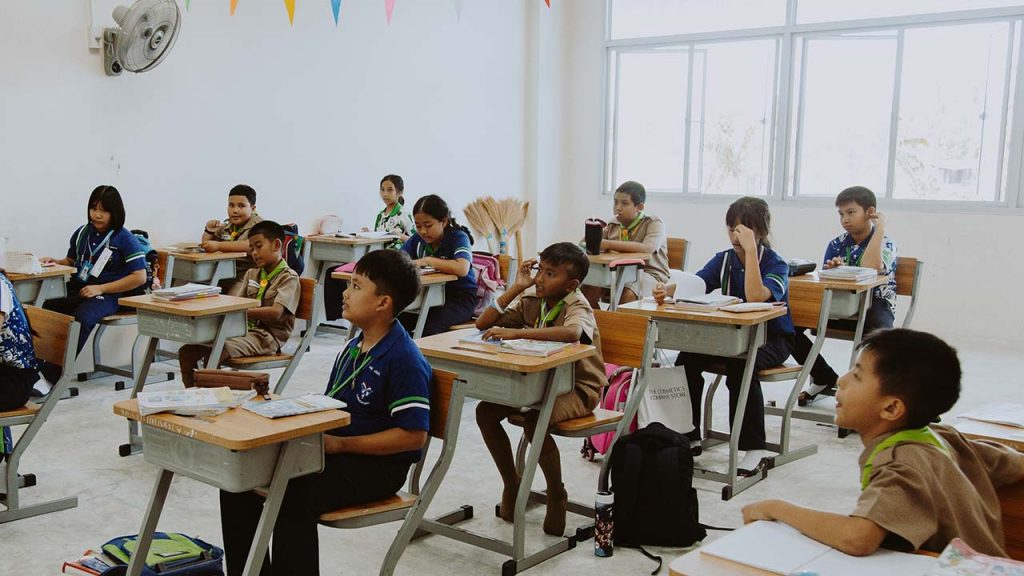Why Is Inclusive Education Important?

Still today, many people remain deprived of education because of their race, gender, religion, disabilities, or economic status.
Individuals from marginalised communities can often be excluded from schools offering essential quality education. They may also have difficulty entering institutes of higher learning and accessing professional development opportunities like leadership coaching. And even when they do manage to enter such institutions, they’re often forced to suffer discriminatory teaching and learning practices that don’t adequately allow for their unique needs and life experiences.
Education, however, has long been recognised as a universal human right. It means that all people are entitled to education and the opportunity for personal growth and development this offers. Furthermore, all people have the right to learn in a supportive and welcoming environment. The principle of inclusive education argues that educating people together regardless of differences has many benefits for all students.
The following are a few of the most compelling arguments for the value of inclusive learning:
It Encourages Respect for Diversity
When learners from various backgrounds study, work, and socialise together, they create an environment where mutual respect and understanding can flourish. This environment is especially relevent for younger students. In most cases, school is often children’s first opportunity to engage with the world outside their families and households. Hence, their experiences there will shape their ideas of community life, civic participation, and social relationships.
Even among adult learners, inclusive learning environments can help change discriminatory attitudes and replace them with healthier, more compassionate ways of relating. Establishing a climate of institutional respect for all people—no matter their identity or abilities—benefits everyone involved.
Inclusive education encourages candid and open discussions about difference, marginalisation, and interpersonal bias. Additionally, it can prompt learners to reconsider their treatment of people with disabilities, different sexual or gender identities, and different cultural and economic backgrounds.
It Considers the Needs of All Students Individually
Conventional education is often governed by rigid performance standards that subtly reflect certain biases and assumptions. Students who are able-bodied and free of learning disabilities, for example, are the most likely to succeed under conventional systems because these systems were designed for them. On the other hand, disabled students and others who do not or cannot learn in traditional ways tend to be left behind by such systems.
Inclusive education acknowledges that all students learn in their own unique ways and at their own individual pace. Inclusive schools and learning centres are thus more likely to provide support measures such as flexible pacing, group and partner work, and access to assistance from subject-area specialists, among others. These measures don’t just benefit conventionally disadvantaged students but may also help high-achieving learners access more educational opportunities that are well-suited to their abilities.
It Drives Greater Student Engagement
As inclusive education is based on the notion that no two learners are exactly the same, inclusive instructors and trainers create various learning experiences and assessment methods. These instructors may, for instance, employ a range of diverse learning modalities in their teaching, such as visual, auditory, interpersonal, or kinesthetic learning.
On the one hand, this responsive, highly flexible approach to teaching allows educators to accommodate and support students with disabilities and other learning impediments. On the other hand, it also makes the overall educational experience more diverse and multifaceted. It enables all students, regardless of background, to receive a variety of learning experiences. They can then, in the process, diversify their own skills, knowledge, and interests.
It Improves Outcomes for All Students
Though advocates for segregation claim that learners who require specialised attention, for whatever reason, perform better when separated from their peers, this is not actually the case. Educating students with disabilities either in special schools or discrete classes within regular schools, for example, does not guarantee these students’ success.
In fact, multiple studies have shown that an inclusive learning environment—one with well trained staff and adequate behavioural and academic supports—produces far better outcomes for disabled students.
Furthermore, inclusive education has proven social and academic benefits for all students, regardless of race, gender, ability, or economic status. Learners educated in inclusive environments are less afraid of interpersonal differences, are more effective communicators, and are more comfortable in diverse social settings. They are also frequently less likely to exhibit prejudiced attitudes and more likely to respond compassionately to the needs of others.
It’s a More Efficient Use of Resources
Providing students with different backgrounds or abilities with specialised instruction is a common excuse for segregation. This approach, however, also gives rise to redundant systems and learning resources that can be costly for schools and learning centres to maintain.
Why is that? Segregated institutions generally have to hire more staff and need to duplicate learning materials in larger quantities. Inclusive schools, by contrast, can maximise available resources and personnel, provided that adequate supports and staff training measures are in place.
Copious research in the educational field has shown that inclusive education provides a better-quality experience for all learners at any level compared to an exclusionary, segregated approach. This experience, in turn, prepares students to respond to the challenges and realities of a diverse, complex world.
Are you interested in inclusive education? Get in touch with Carrie Benedet here.





